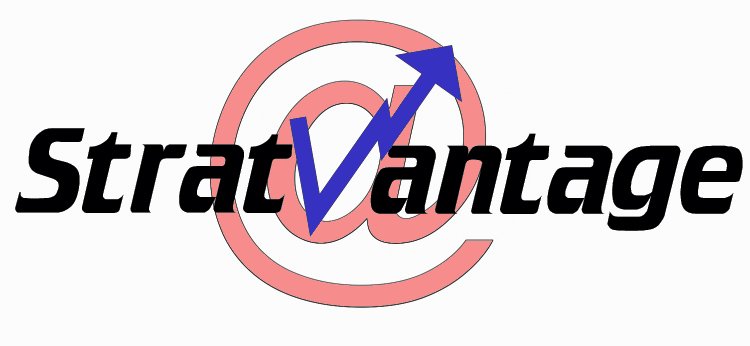From Evernote: |
StratVantage Consulting, LLC — Mike’s Take on the News 05/01/01Clipped from: http://www.stratvantage.com/news/050101.htm |
The News – 05/01/01
Micropayments Are Neither Micro, Nor Payments. Discuss.
Many folks are forecasting that micropayments are a coming thing. Never mind that they’ve been coming since at least 1995. Back then, I remember sitting in a meeting with Nathaniel Borenstein who was pitching First Virtual Holdings and their e-cash solution. Micropayments were going to be the Next Big Thing (NBT). People would retail their information or other downloadable goods for pennies or fractions of pennies, First Virtual would roll up the transactions, skim off a transaction fee, and pay the content owner once enough money had accumulated. It was a brave new world a-comin’.
First Virtual’s payment system didn’t make it. Borenstein, a true Internet innovator whom I wrote about in January , now is Chief Scientist for NetPOS (that’s Point Of Sale). NetPOS is selling an Internet Point of Sale (POS) system that uses the Application Service Provider (ASP) model to provide real-time purchasing information to a central site. They aim to replace cash registers, which definitely can’t be used for micropayments
BTW, There’s a bit of First Virtual’s history preserved in the ancient Downtown Anywhere site (last updated, 1996) if you want to make like Disney and stroll down the virtual main street of the retro-future. This was the demo that Borenstein pitched us so long ago.
So, anyway, micropayments have been imminent for years, and now, wireless providers are resurrecting them as the NBT for m-commerce, or mobile commerce. Recently, Australia’s Telstra announced a micropayment trial using mobile phones to buy soft drinks. This has been done already in Finland, and it does sound cool. One major difference between the micropayments of the First Virtual era and today is, pop costs a buck in most vending machines, and that’s not really micro, in my book.
John Brand of the Meta Group calls the effort “cute (and mildly useful).” But Brand is not too optimistic about the long term use of such technology. “However, the infrastructure costs of networking these machines and providing the billing applications ensure this will remain a niche play for some time. However, we expect to see telcos move much more aggressively into this ‘embedded services’ space during the next 3-5 years, as the competition for control of the customer relationship intensifies.
OK, that’s two howevers in a row, so it’s hard to tell what Brand means about telco aggression. However, there are others who don’t think the micropayment thing will ever fly. Clay Shirky, of The Accelerator Group, is one of them. I wrote about his article, The Case Against Micropayments , in a stratlet a while ago, but that got caught in the bitbucket, and so I’ve recently reposted it. Basically, Shirky argues that, for micropayments to work, at least for information, users have to simultaneously believe that the information is worthwhile (expensive) and that the information is not worth all that much (or free). This doesn’t seem to be a problem for a Coke; you know what it’s worth, and you’re likely to be willing to pay for it if you’re thirsty. But what about a business transaction or a white paper, or maybe a special search?
Northern Light has tried to make a business out of selling reprints of newspaper and magazine articles at $2.95 apiece. Despite having more than 50 million articles, I can’t imagine it’s working that well. On the other hand, Northern Light’s last round of financing was in 1999, so they must be doing something right.
So what does this mean for businesses? I’d watch the micropayments effort closely, especially if you sell something that can be bought on impulse. There are many problems to solve, not the least of which is, what do you do when someone steals your phone? Will payment enablers indemnify you against fraudulent use of a phone for payments like credit card companies will? (BTW, and slightly off topic, did you know a thief can use your Check Card without ID or your PIN? And that banks will cover the fraud, but make you carry the charge in your account while they investigate?)
If these and other issues get hammered out, the cashless society may be at hand.
Can’t Get Enough of ME?
In the unlikely event that you want more of my opinions, I’ve started a Weblog. It’s the fashionable thing for pundits to do, and I’m doing it too. A Weblog is a datestamped collection of somewhat random thoughts and ideas assembled on a Web page. If you’d like to subject the world to your thoughts, as I do, you can create your own Weblog. You need to have a Web site that allows you FTP access, and the free software from www.blogger.com . This allows you to right click on a Web page and append your pithy thoughts to your Weblog.
I’ve dubbed my Weblog entries “Stratlets”, and they are available at www.stratvantage.com/stratlets/ . Let me know what you think. Also check out the TrendSpot for ranking of the latest emerging trends.
Return to Mike’s Take
